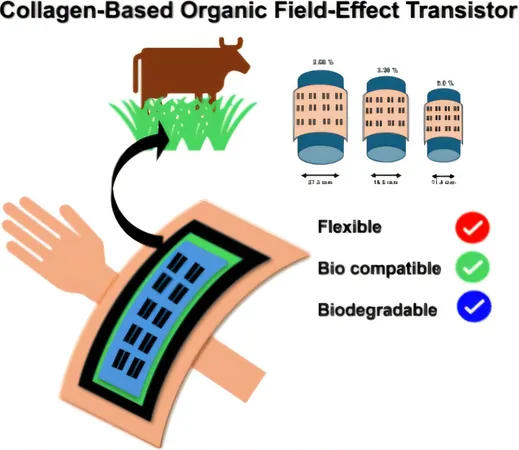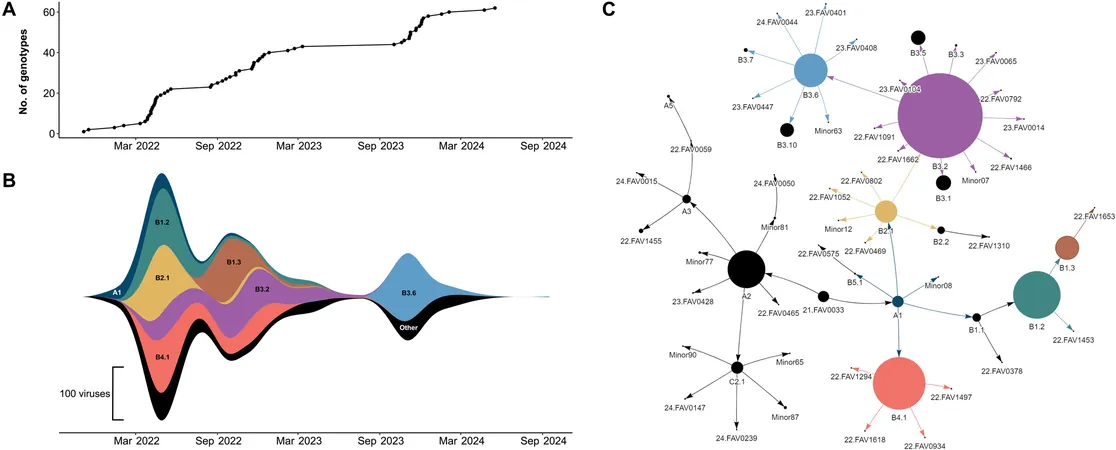
Revolutionary AI Breakthrough: Detecting Traces of Cancer in Blood Like Never Before!
2025-06-16
Author: Wei
Transforming Cancer Monitoring with AI
Scientists at the A*STAR Genome Institute of Singapore have made a groundbreaking advancement in cancer detection through an innovative AI method named "Fragle." This technology harnesses the power of artificial intelligence to track circulating tumor DNA (ctDNA) within small blood samples, allowing for a more precise and cost-effective monitoring of cancer treatment responses.
A Simple Approach with Major Impacts
Lead researcher Anders Skanderup, PhD, explains that much like how COVID-19 was tracked through viral particles in wastewater, Fragle analyzes DNA fragments in blood to assess how effectively a cancer treatment is working and to catch any signs of relapse early on. With current methods being complex and pricey, Fragle seeks to simplify this process, making it accessible and practical for clinical use.
A Smarter, Cheaper, and Faster Solution
Published in the esteemed journal *Nature Biomedical Engineering*, the study showcases a deep-learning model that accurately quantifies ctDNA by comparing the lengths of DNA fragments present in blood samples. Since ctDNA generally differs in size from healthy DNA, Fragle allows rapid and reliable quantification, providing essential insights into patient responses to treatment.
Cost-Effective and Efficient Monitoring
One of the standout features of Fragle is its affordability. Requiring only a small sample of DNA, it can facilitate cancer monitoring at a fraction of the cost—approximately $39 compared to traditional tests that can surpass $780. This financial efficiency opens doors for frequent monitoring, granting physicians a clearer view of treatment efficacy and early signs of potential relapse.
Collaborative Efforts in Clinical Trials
In collaboration with the National Cancer Centre Singapore, the A*STAR team is currently monitoring over 100 patients in clinical trials, analyzing ctDNA levels bi-monthly during their treatment journey. This ongoing study aims to determine how variations in ctDNA may predict patient responses to various therapies.
A Vision for the Future of Cancer Screening
Looking ahead, the researchers plan to further their studies, with aspirations of integrating the Fragle method into hospitals for routine cancer screening. Dr. Wan Yue, Executive Director at A*STAR GIS, expressed excitement about Fragle's potential to revolutionize cancer detection and treatment monitoring, enhancing patient care not just in Singapore, but on a global scale.
This remarkable development underscores the significant strides being made in genomic research, with the hope of transforming cancer care and ultimately improving outcomes for patients everywhere.




 Brasil (PT)
Brasil (PT)
 Canada (EN)
Canada (EN)
 Chile (ES)
Chile (ES)
 Česko (CS)
Česko (CS)
 대한민국 (KO)
대한민국 (KO)
 España (ES)
España (ES)
 France (FR)
France (FR)
 Hong Kong (EN)
Hong Kong (EN)
 Italia (IT)
Italia (IT)
 日本 (JA)
日本 (JA)
 Magyarország (HU)
Magyarország (HU)
 Norge (NO)
Norge (NO)
 Polska (PL)
Polska (PL)
 Schweiz (DE)
Schweiz (DE)
 Singapore (EN)
Singapore (EN)
 Sverige (SV)
Sverige (SV)
 Suomi (FI)
Suomi (FI)
 Türkiye (TR)
Türkiye (TR)
 الإمارات العربية المتحدة (AR)
الإمارات العربية المتحدة (AR)